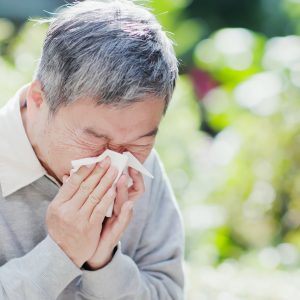Uniquely Vulnerable: Why The Immune Systems Of Older Adults Put You At More Risk

Uniquely Vulnerable: Why The Immune Systems Of Older Adults Put You At More Risk
March 18, 2020
Like almost everything else you face as you get older, your immune system becomes a bit slower as you age. Your ability to fight things off weakens, you may acquire an autoimmune disorder (like rheumatoid arthritis or psoriasis) or your ability to detect and correct cell defects may decline (which is why older people get cancer more frequently). And perhaps more related to the current coronavirus crisis, it seems that the immune systems of older adults have fewer and weaker white cells that can detect and eliminate infections. As an excellent recent article in Vox makes clear, “immune functions go down rather quickly after age 75 or 80.” Older people are also at risk for something called cytokine storm overreaction, which is a phenomenon where the immune system overreacts, causing severe inflammation, high fever and organ failure. It’s something witnessed in flu in older people and now apparently as well in older adults with coronavirus. It definitely contributes to the lethal nature of COVID-19 for older patients. You should also be aware that your lungs change as you age, putting you more at risk for respiratory problems.
Chronic disease, a frequent problem for aging adults, can also put you at a higher risk of serious illness when you acquire the coronavirus. For example, lungs that are affected cause the heart to work much harder, a problem for those who already have cardiovascular disease. And diabetes can damage the nervous system and challenge the body’s ability to clear infection from the lungs, along with suppression of immune cells due to high blood sugar.
The question is, is there anything you can do right now to strengthen your immune system and help you ward off COVID-19? No matter what you read, there are no immediate magic bullets to instantly improve your immune system. While it’s thought that such substances as zinc, fermented foods or other additions to your diet may help, the reality is that scientific evidence to support these assertions is mixed at best. So much depends upon what you’ve been exposed to and what sort of lifestyle you lead. But there is consensus that it’s within your control to boost your immune system for the long term with the adoption of many behaviors that you already know are part and parcel of healthy aging. These include a healthy diet, weight control, exercise, stress reduction, adequate sleep, and smoking elimination. As writer Derek Beres states in his recent Big Think post, “Your entire body is effectively your immune system.” So take care of your body and your immune system should be better fortified to fight the good fight for you.







